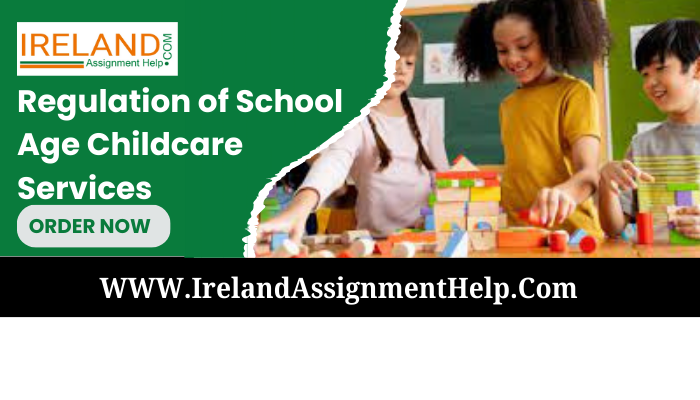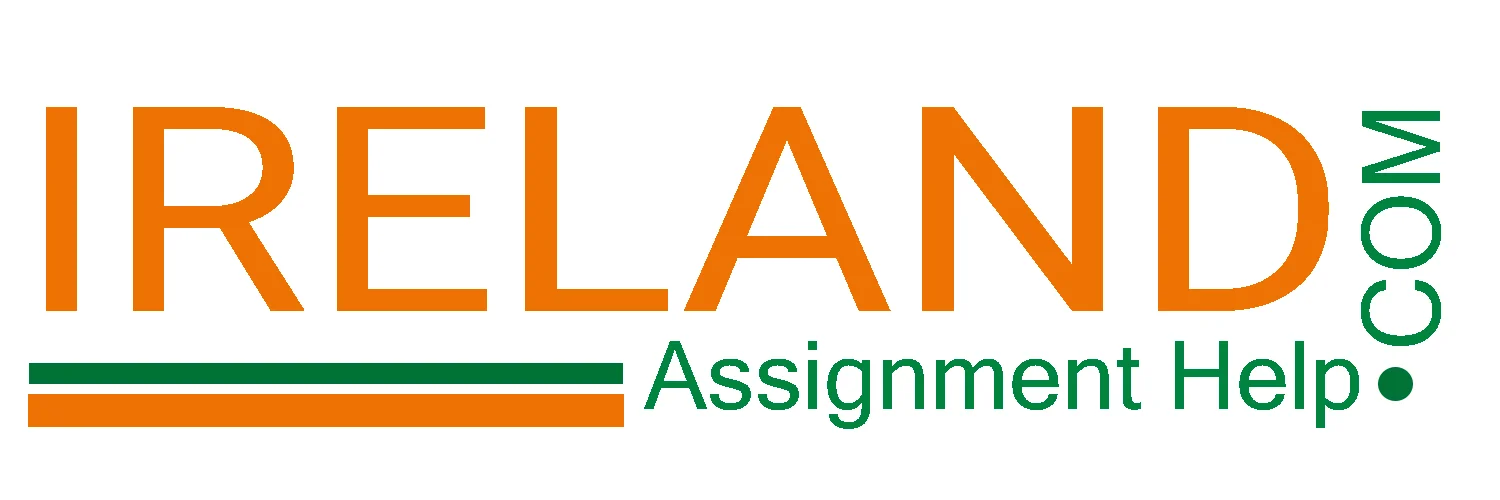Regulation of School Age Childcare Services (School Age Childcare Ireland)
School Age Childcare (SAC) plays a crucial role in supporting families and nurturing children’s development across Ireland. As we navigate the complexities of modern family life, the demand for high-quality, safe, and engaging care for school-age children outside of school hours continues to grow. In response to this need, Ireland has implemented a robust regulatory framework to ensure that SAC services meet the highest standards of care and education.
This blog post aims to provide a comprehensive overview of the regulation of school-age childcare services in Ireland, exploring the key aspects of the regulatory framework, the registration process, and the standards that providers must meet. We’ll also delve into the School Age Childcare Guidelines and address common questions about SAC in the Irish context.

What is School Age Childcare (SAC)?
Before we dive into the regulatory aspects, it’s important to clarify what we mean by School Age Childcare. In Ireland, SAC refers to childcare services provided outside of school hours to children who are attending school and are under the age of 15. This includes:
- Before-school care
- After-school care
- Holiday care during school breaks
SAC services can be offered in various settings, including:
- Dedicated SAC centers
- Early years services that also cater to school-age children
- Day nurseries
- Crèches
- Community centers
- Schools (utilizing existing facilities)
The primary goal of SAC is to provide a safe, nurturing, and stimulating environment for children when they are not in school or under parental care. These services play a vital role in supporting working parents and contributing to children’s overall development and well-being.
Hire an Irish Assignment Writer to Write your Essay, Thesis & Other Academic Papers
The Regulatory Framework
The regulation of SAC services in Ireland is governed by the Child Care Act 1991 (Early Years Services) (Registration of School Age Services) Regulations 2018. This legislation sets out the standards of health, safety, and welfare that must be met by all SAC providers.
Key aspects of the regulatory framework include:
- Registration requirement: All SAC services must register with Tusla (the Child and Family Agency) before they can begin operating.
- Compliance with standards: Providers must adhere to specific standards related to health, safety, and child welfare as outlined in the regulations.
- Regular inspections: Tusla is responsible for inspecting and monitoring SAC services to ensure ongoing compliance with regulations.
- Re-registration: Services must re-register with Tusla every three years, during which time they will undergo inspections.
- Public register: Tusla maintains a public register of all registered SAC services, allowing parents to verify the registration status of providers.
The Registration Process
For those looking to establish a new SAC service, understanding the registration process is crucial. Here are the key steps:
- Pre-registration preparation: Prospective providers should familiarize themselves with the regulations and ensure their planned service meets all requirements.
- Application submission: New services must submit their registration application to Tusla at least three months before their intended opening date.
- Documentation: Applicants must provide comprehensive documentation, including policies and procedures, staff qualifications, Garda vetting results, and premises details.
- Pre-registration inspection: Tusla will inspect the premises and review all submitted documentation.
- Registration decision: Based on the inspection and documentation review, Tusla will decide whether to grant registration.
- Certificate of registration: From January 31, 2023, all registered services must display their certificate of registration in a prominent position within their childcare setting.
It’s important to note that providers offering both SAC and preschool services must register separately for each service type.
Key Regulatory Standards
The regulations cover a wide range of areas to ensure the safety, well-being, and development of children in SAC services. Some of the key standards include:
- Health, welfare, and development of the child: Providers must safeguard the overall well-being of children in their care.
- Management and staffing:
- Appropriate supervision must be maintained at all times.
- All staff, students, and volunteers with access to children must undergo Garda vetting.
- A second person must always be available to assist in emergencies.
- Adult-to-child ratios:
- Centre-based services must maintain a minimum ratio of 1 adult to 12 school-age children.
- Childminding services have specific limits on the number of children they can care for, with ratios varying based on the mix of preschool and school-age children.
- Behaviour management: Written policies and procedures for managing challenging behaviour and bullying must be in place.
- Premises: Services must meet specific standards for their facilities, including daily access to outdoor space.
- Safety measures: Policies must be in place for medication administration, infection control, fire safety, and child drop-off/collection.
- Insurance: Adequate insurance coverage for children in care is mandatory.
- Complaints procedure: A formal process for recording and addressing complaints must be established and communicated to parents.
School-Age Childcare Guidelines
In addition to the regulatory requirements, the Department of Children, Equality, Disability, Integration and Youth (DCEDIY) has developed School Age Childcare Guidelines. These guidelines provide a framework for best practices in SAC and offer valuable guidance to providers on creating high-quality services.
Key areas covered in the guidelines include:
- Rights of the child: Emphasizing the importance of respecting children’s rights and promoting their active participation in the service.
- Relationships: Focusing on building positive relationships between staff, children, and families.
- Physical environment: Guiding the creation of stimulating and safe indoor and outdoor spaces.
- Programme of activities: Offering suggestions for age-appropriate activities that support children’s development and interests.
- Health, well-being, and safety: Detailing best practices for maintaining a healthy and safe environment.
- Food and nutrition: Guiding healthy eating practices and food safety.
- Partnerships with families and communities: Encouraging strong connections between SAC services, families, and the wider community.
These guidelines, while not legally binding, serve as a valuable resource for providers seeking to enhance the quality of their services beyond the minimum regulatory requirements.
Scared with Looming Deadline, Buy Plagiarism Free Paper Writing Services Now
Exemptions from Registration
While most SAC providers must register with Tusla, there are some exceptions. The following are exempt from registration requirements:
- Relatives of the child (or spouses of such relatives), including siblings, aunts, uncles, grandparents, or step-parents.
- Childminders caring for no more than 6 children (excluding their own) at any one time, with a maximum of 3 pre-school age children.
- Drop-in centres provide occasional care.
- Temporary school-age childcare services.
It’s important to note that while these providers are exempt from registration, they are still expected to provide safe and quality care for children.
The Role of Tusla in Regulation and Inspection
Tusla, the Child and Family Agency, plays a central role in the regulation and inspection of SAC services. Their responsibilities include:
- Maintaining the register: Tusla manages the registration process and maintains the public register of SAC services.
- Conducting inspections: Regular inspections are carried out to ensure ongoing compliance with regulations.
- Investigating complaints: Tusla investigates complaints about registered services and takes appropriate action when necessary.
- Providing guidance: Tusla offers guidance to providers on meeting regulatory requirements and improving service quality.
- Enforcing compliance: When necessary, Tusla has the authority to enforce compliance with regulations, including the power to remove services from the register.
Benefits of Regulation for Children, Families, and Providers
The regulatory framework for SAC services in Ireland offers numerous benefits:
- Safety and well-being: Regulations ensure that basic safety and welfare standards are met, protecting children from harm.
- Quality assurance: Regular inspections and clear standards help maintain and improve the quality of care provided.
- Parental confidence: Parents can feel more secure knowing that their children are in registered, inspected services.
- Professional development: Regulations often drive professionalization of the sector, encouraging ongoing training and development for staff.
- Consistency: A standardized framework helps ensure a baseline level of quality across different providers.
- Continuous improvement: The regulatory process, including inspections and re-registration, encourages ongoing reflection and improvement in service provision.
Challenges and Future Directions
While the current regulatory framework has significantly improved the quality and safety of SAC services in Ireland, challenges remain:
- Balancing regulation and flexibility: There’s an ongoing need to strike a balance between ensuring safety and quality through regulation while allowing providers the flexibility to meet diverse community needs.
- Workforce development: Attracting and retaining qualified staff remains a challenge for many SAC providers.
- Inclusivity: Ensuring that SAC services are accessible and suitable for all children, including those with additional needs, is an ongoing priority.
- Sustainability: Many providers face financial challenges in meeting regulatory requirements while keeping services affordable for families.
Looking ahead, potential areas for development in SAC regulation include:
- Enhanced focus on quality: While current regulations focus heavily on health and safety, future developments may place greater emphasis on educational quality and child outcomes.
- Technology integration: As technology becomes increasingly integral to children’s lives, regulations may need to adapt to address digital safety and appropriate use of technology in SAC settings.
- Sustainability practices: Future regulations might incorporate standards for environmental sustainability in SAC services.
- Mental health and well-being: Given the growing awareness of children’s mental health needs, future regulatory frameworks may place greater emphasis on supporting children’s emotional well-being.
Get 100% Unique Assignment Papers for Your College & Get Good Grades
Conclusion
The regulation of School Age Childcare services in Ireland represents a significant commitment to ensuring the safety, well-being, and development of school-age children during out-of-school hours. Through a comprehensive framework of registration, standards, and inspections, Ireland has created a system that aims to provide parents with peace of mind and children with high-quality care experiences.
As the sector continues to evolve, ongoing dialogue between policymakers, providers, parents, and children will be crucial to refining and improving the regulatory framework. By maintaining a focus on quality, safety, and child-centred practices, Ireland’s SAC sector can continue to play a vital role in supporting families and nurturing the next generation.
For providers, staying informed about regulatory requirements and best practices is essential. For parents, understanding the regulatory framework can help in making informed choices about SAC services. For all stakeholders, recognizing the importance of high-quality SAC in supporting children’s development and family well-being is key to continued investment and improvement in this crucial sector.
As we look to the future, the regulation of SAC services will undoubtedly continue to evolve, always with the best interests of Ireland’s children at its heart. Through collaborative efforts and a shared commitment to excellence, we can ensure that School Age Childcare in Ireland remains a model of quality, safety, and positive impact on children’s lives.
Frequently Asked Questions (FAQs)
1. What is school-aged childcare?
School-aged childcare, or SAC as everyone calls it, simply means care for kids once the school bell’s gone. It might be before school, afternoons, or holidays – basically the hours when parents are still working. Some centres run inside schools, others from local halls or community rooms. The idea’s to give children a safe spot to unwind, play, or finish homework without it feeling like more schoolwork. A bit of fun and routine mixed together.
2. What age is free childcare in Ireland?
Free childcare mainly sits under the ECCE scheme, for children aged roughly 2 years 8 months to 5½ years. Once they’ve moved into primary school, families usually shift to the National Childcare Scheme (NCS) for help with after-school or holiday hours. The support changes with income and working hours, so it’s worth checking the NCS calculator rather than guessing. Every family’s setup is a bit different.
3. What is the ratio for school-age childcare?
Tusla’s guidelines’s one adult for every twelve school-age children in a centre. Smaller home-based childminders have slightly different limits, especially if there are younger kids around. Plenty of services keep the numbers lower anyway – you can manage activities better and actually chat with the kids instead of counting heads every minute.
4. What qualifications do I need to work in after-school care in Ireland?
Most places look for a QQI Level 5 or 6 in Early Childhood Care and Education or something close, like Youth Work. Experience counts just as much – being calm with a lively group is half the job. You’ll also need Garda vetting and short courses such as Children First, first aid, and maybe behaviour management. A lot of people start as volunteers in local after-school clubs, get a feel for it, and then move into paid posts once qualified.
5. Can someone help me understand what counts as School Age Childcare in Ireland for my assignment?
Sure! SAC is basically care provided outside school hours for kids under 15—before-school, after-school, and during holidays. Places like community centres, crèches, or even some schools count. Usually, check the DCEDIY guidelines for examples when doing essays.
6. Do I need to mention Tusla regulations when I do my SAC essay?
Absolutely. Tusla regulates SAC under the Child Care Act 1991 (and 2018 regs). Just explaining how registration, inspections, and standards work is enough. You could even reference a local centre in Galway or Cork for context—it makes your assignment more relatable.
Usually, break it down step by step: prep your docs, submit the application to Tusla, get inspected, and then wait for approval. Sprinkle in something like “display certificate from Jan 2023 onwards” to show you’re up to date with Irish practice.
8. Can someone do my assignment on SAC standards for me?
Yes, but if you want it authentic, highlight things like adult-to-child ratios (1:12 in centres) or Garda vetting for staff. Adding practical examples, like a summer camp I saw in Limerick, keeps it grounded.
9. How do I cover key regulatory standards without making my essay boring?
Focus on what matters day-to-day: health, safety, behaviour policies, and outdoor play. Usually, give a mini case example—like how a centre handled allergies safely—it’s short, concrete, and shows understanding.
10. Should I include School Age Childcare Guidelines in my essay?
Yes, definitely. They’re not the law, but they show best practice. Mention the focus on children’s rights, relationships, and activity programmes. Even citing Age Action or TILDA reports gives it an Irish flavour.
11. Are there any exceptions to registration I should mention in my assignment?
Yeah, relatives caring for a few kids or small childminders with up to 6 kids don’t have to register. Pointing this out shows you understand the nuance, which lecturers like.
12. How do I talk about Tusla’s inspections without copying textbook stuff?
Keep it practical. Write something like: “Tusla pops in to check policies, staff, and safety. They also investigate complaints, so centres can’t slack off.” Makes it read like a real experience.
13. Can someone help me include the benefits of SAC regulation for children and families in my essay?
Totally. Focus on safety, quality, parental confidence, and staff training. Usually, link it to a real Irish example—like how after-school clubs in Cork improved routines after Tusla inspections.
14. How do I include challenges and future directions in SAC regulation for my assignment?
Mention workforce shortages, keeping services affordable, and adapting to mental health or digital needs. Add a line about possible future focus on sustainability or wellbeing programmes—makes your essay forward-looking and current.


